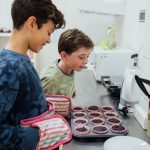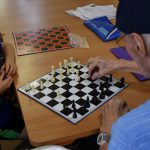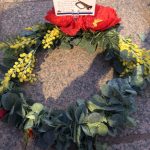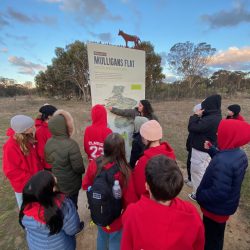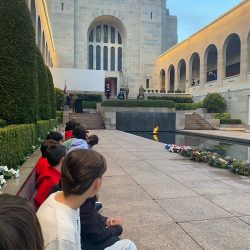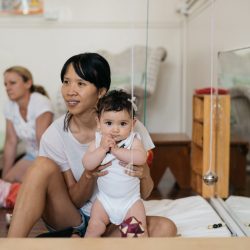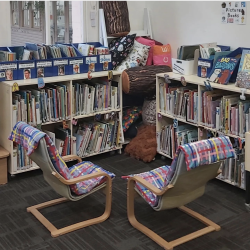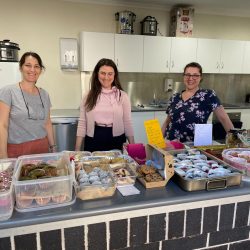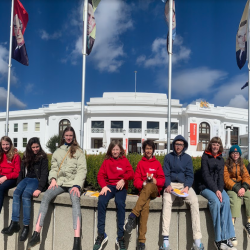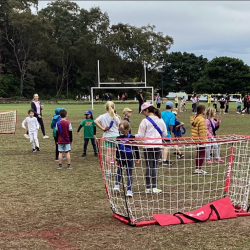Community
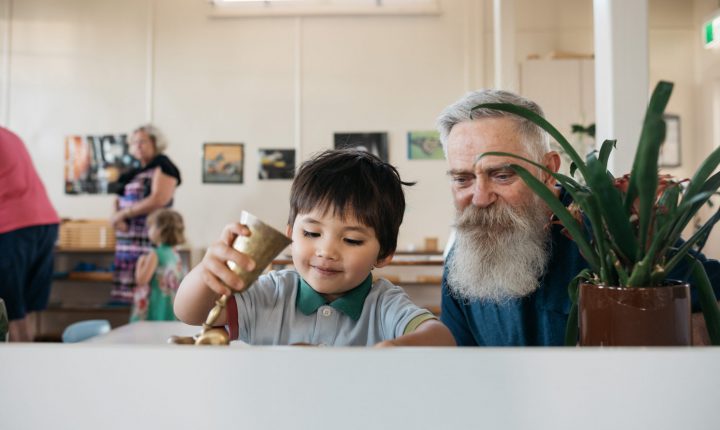
Children are actively involved in both our wider community and in the school community through a variety of activities. Community engagement expands the learning and interactions of children beyond their classroom.
‘Going Out’ was a term used by Maria Montessori, which means that the children ‘go out’ into their community and expand their learning and interactions beyond the classroom. Going Out is an essential component of learning for children in the second plane of development as it allows the knowledge and understandings that children acquire within the classroom to be transferred into ‘real world’ contexts.
The children may go out into their community in support of their research projects, to collect data, to obtain information, to make purchases for the classroom, to attend events and visit museums/historical sites.
Social and emotional intelligence is significantly developed through going out as the children learn to self-regulate their behaviour, demonstrate grace and courtesy to those they pass by, show gratitude to those who have assisted them and ask questions of experts in the community to obtain further understandings.
Each week, children within the school, meet to discuss the increasing effects that plastic is having on our environment and natural ecosystems. The children collaborate to raise awareness of these impacts and to research more sustainable alternatives to reducing the use of this material in their daily lives and throughout the school.
Care and responsibility for biodiversity is supported through the children’s maintenance of gardens within the school. These hands-on experiences also support work in the curriculum area of Botany, encourage the children’s skills in observation and encourage healthy eating.
In Montessori classrooms, preparing and serving meals is a key component of learning, socialisation and service to others. The children use food they have grown in their garden and take supervised walks to the supermarket to collect their groceries.
Within the Stage 2 and Stage 3 classrooms, the children collaborate for reading each week. Children in Stage 3 read with younger children in Stage 2 to support them in their learning and provide them with one-on-one guidance.
Letter writing is an initiative involving all classes within the school. The children write letters to their pen pals in other classes as a way to share their experiences, share what they have learned and stay connected to their friends in other classrooms. When a child transitions from the 6 – 9 year old to the 9 – 12 year old class, they keep a connection to their old classmates and teacher through writing and receiving letters.
The student newspaper ‘Evergreen” is a recent initiative in response to more informal newspapers students were previously creating, however, this is still encouraged. Stage 3 students volunteer to act as the editor of their own student newspaper “Evergreen”, sourcing articles from peers, writing material such as film reviews, creating puzzles, writing and drawing cartoons and other content. ‘Evergreen’ is published and released once a term.
Each fortnight, children from Stage 2 and Stage 3 classes visit a local nursing home to spend an hour of their time with the elderly residents. The children bring work and stories to share, play music, play games or teach the residents to draw or knit. A very valuable and moving experience for all involved!
The children select a charity themselves based on a cause they are connected with. They then plan, organise and carry out fundraisers in order to raise money for this organisation.

